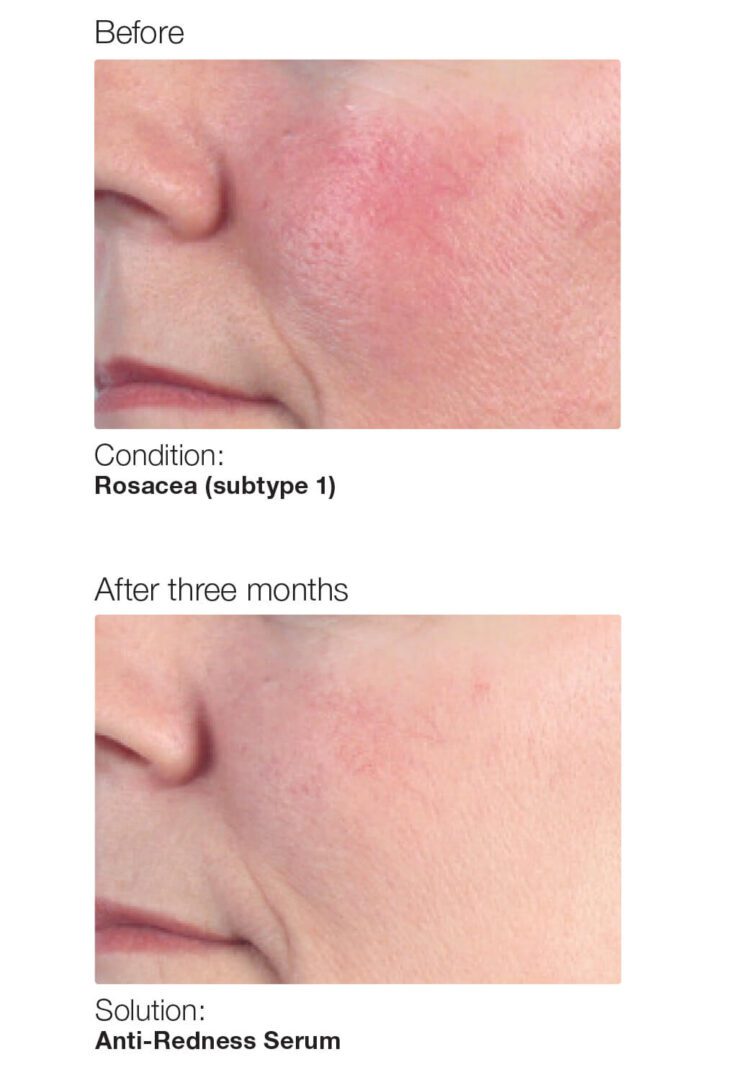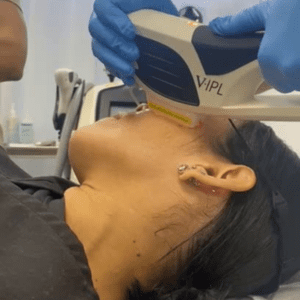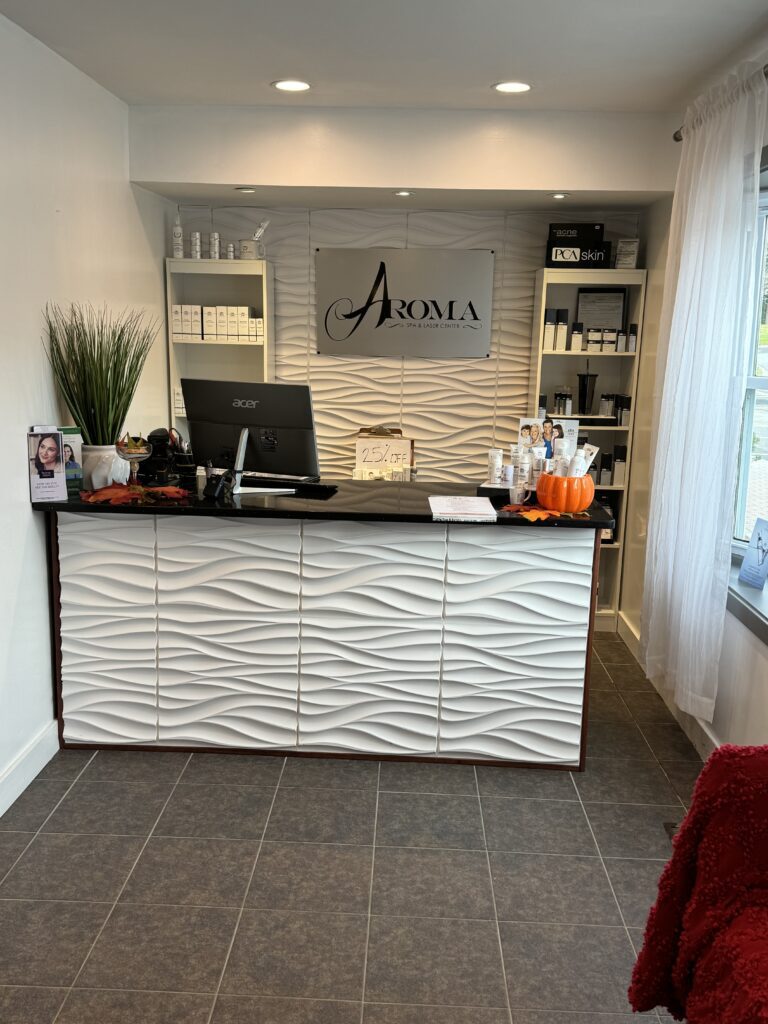Sensitive Skin
Rosacea, Eczema, Severe Allergies
Description:
Sensitive skin refers to a range of conditions from genetic aliments such as:
Rosacea – Rosacea is a chronic skin condition characterized by facial redness, visible blood vessels, and sometimes small, red bumps that may resemble acne. Commonly affecting the central face, including the cheeks and nose, rosacea can also lead to a persistent flush or blush-like appearance. It may involve periods of flare-ups and remissions, and in advanced cases, the skin may thicken and develop a bumpy texture. While the exact cause is unknown, factors such as genetics, sun exposure, and certain triggers like spicy foods or alcohol can exacerbate symptoms.
Eczema – Eczema, also known as dermatitis, is a common skin condition characterized by inflammation, redness, and itching. It often leads to the development of dry, flaky patches on the skin. Eczema can vary in severity and may manifest differently from person to person. Common triggers include genetics, environmental factors, allergies, and a compromised skin barrier. While there is no cure, management strategies involve moisturizing, avoiding irritants, and, in some cases, topical medications.
Severe allergies – Severe allergies can contribute to highly sensitive skin, characterized by heightened reactivity and susceptibility to irritation. Individuals with severe allergies may experience skin reactions such as redness, itching, swelling, and even hives upon exposure to allergens. Common allergens include certain foods, insect bites, pollen, or specific ingredients in skincare products. The skin’s barrier function may be compromised, making it more prone to inflammation and reactions.
In Office Treatments:
Here at Aroma, we can help alleviate your sensitive skin concerns by using gentle and soothing products as well as choosing effective treatment options to treat your concerns without compromising your skin. We recommend calling to book a free skin consultation to determine the best treatment options for the conditions you would like to treat.
At home tips:
Add a calming face mask to your routine.
Use appropriate cosmetic that your esthetician recommend to you.
Avoid hot showers or too much heat.
Before & After Images:



